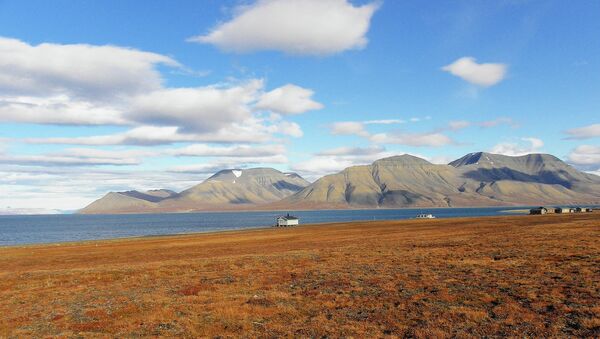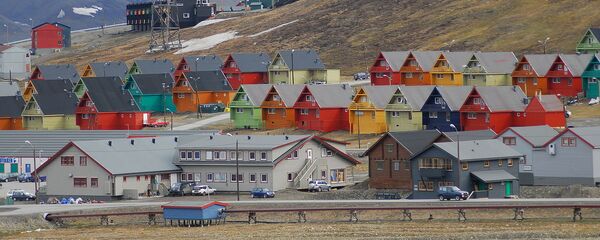In 2014, a task group comprised of researchers from the University of Tromsø and Cicero got down to work in the Arctic to find out what happens to methane leaking from the sea and gauge how much of it is released into the air.
Subsequently, samples of ocean water and air were taken from a boat, and a research plane measured the concentration of methane from 15 to 30 meters above the surface. These were later compared with samples which were collected at a weather station on Svalbard. The results have sent shockwaves through Norway's scientific community: the concentration of methane at the sea surface was as high as that in Svalbard's mountains.
The mountain of light. @savethearctic #svalbard #landscape #photography #light #ice #glacier #wildlifephotography pic.twitter.com/yZKEga7RfD
— Gianmarco Vichi (@GianmarcoVichi) 24 мая 2016 г.
"This means that the ocean is not the source of the methane in the air, at least in this area, Cathrine Lund Myhre, senior scientist at the Norwegian Institute for Air Research NILU and project manager, told Norwegian national broadcaster NRK.
"During the summer, the ocean water is strongly layered. On the surface, there is fresh and light water, while the heavy, methane-rich water stays on the bottom. When the first autumn storms come, it is natural to expect the water layers to mix up," Tore Furevik, director of the Bjerknes Centre for Climate Research said, calling for continued research.
A marked increase in the methane content of the atmosphere around Svalbard has been measured recently. However, the source of methane was never established. The recent research will most likely reduce the uncertainty concerning the natural emission.
"In recent years, the temperature on Svalbard in February has remained 10-12 degrees above normal. This temperature increase is likely to invoke major climate changes," Lund Myhre said.
Methane is a powerful greenhouse gas: it is much stronger than carbon dioxide. As global warming progresses, more greenhouse gases could be released into the atmosphere, resulting in the the thawing of the permafrost and the permanent ice floes, which could, in turn, result in a rise of sea levels worldwide.
Did you know? #Svalbard is not part of the #Schengen accords https://t.co/PqkjbLEir1 #Norway pic.twitter.com/32WyQg3e5A
— JC Lightcap (@travel_safer) 30 мая 2016 г.




